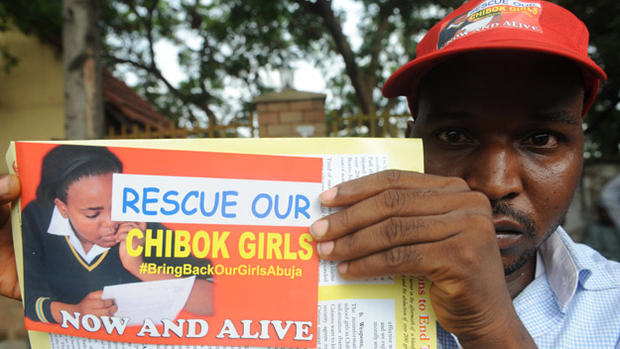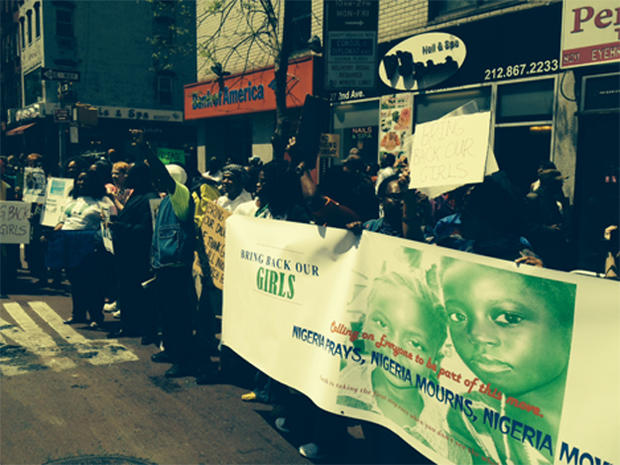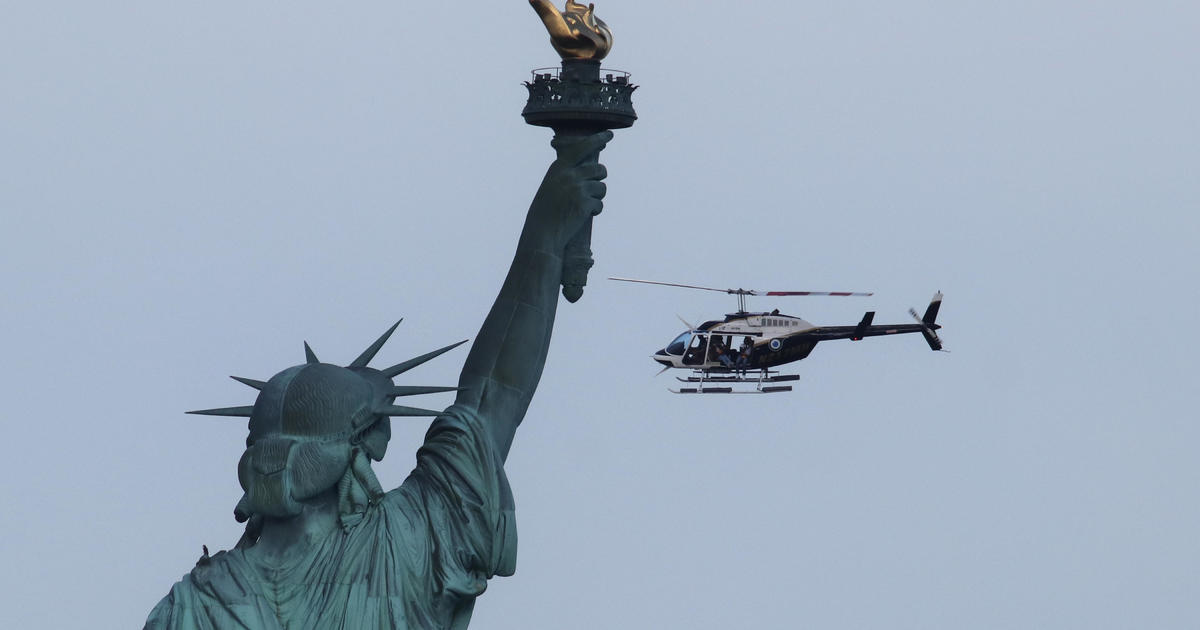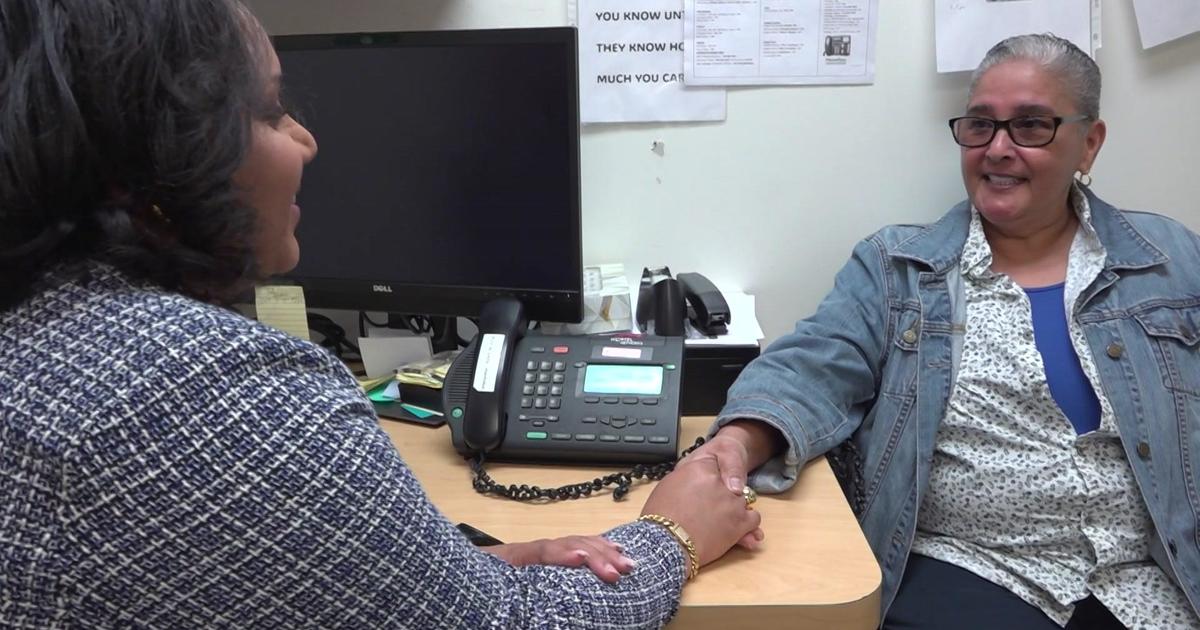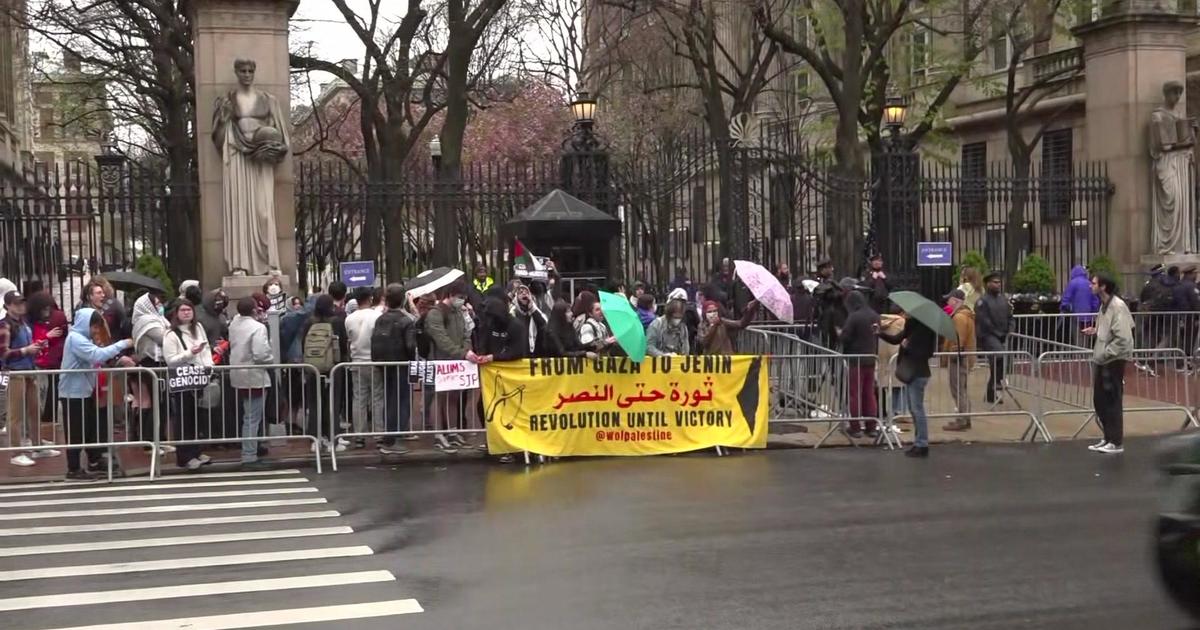Sen. Charles Schumer Calls For Reward Leading To Kidnapped Nigerian Schoolgirls
ALBANY, N.Y. (CBSNewYork/AP) -- Sen. Charles Schumer is calling on the U.S. State Department to establish a reward for reliable information leading to the rescue of 276 missing girls in Nigeria.
Sen. Charles Schumer Calls For Reward Leading To Kidnapped Nigerian Schoolgirls
The New York Democrat said Sunday the U.S. should also provide refugee status to anyone who isn't a terrorist and helps find them while placing on its terrorist watch list any individual discovered buying the girls or harming them.
Sen. Charles Schumer Calls For Reward Leading To Kidnapped Nigerian Schoolgirls
"It's an appropriate day to ask that our government do everything we can to bring back these girls and do whatever else it can to stop the evil of Boko Haram," Schumer said.
An international effort is underway to find and return the 276 schoolgirls being held captive by Islamic extremists in northeastern Nigeria.
Boko Haram rebels attacked Chibok, the town where they were abducted, in mid-April.
Schumer, calling the kidnappings "barbaric and gutless," says the U.S. steps are needed particularly in light of the "disturbingly slow and half-hearted response" by the Nigerian government.
"I think we have to move quickly and do more because the lives of these girls hang balance every single minute, every single second," the senator said.
Schumer's request comes as news has surfaced that the president of Nigeria for weeks refused international help to search for the girls, one in a series of missteps that have led to growing international outrage against the government.
The United Kingdom, Nigeria's former colonizer, first said it was ready to help in a news release the day after the mass abduction on April 15, and made a formal offer of assistance on April 18, according to the British Foreign Office. And the U.S. has said its embassy and staff agencies offered help and were in touch with Nigeria "from day one" of the crisis, according to Secretary of State John Kerry.
Yet it was only on Tuesday and Wednesday, almost a month later, that President Goodluck Jonathan accepted help from the United States, Britain, France and China.
The delay underlines what has been a major problem in the attempt to find the girls: an apparent lack of urgency on the part of the government and military, for reasons that include a reluctance to bring in outsiders as well as possible infiltration by the extremists.
Jonathan bristled last week when he said President Barack Obama, in a telephone conversation about aid, had brought up alleged human rights abuses by Nigerian security forces. Jonathan also acknowledged that his government might be penetrated by insurgents from Boko Haram, the extremist group that kidnapped the girls. Last year, he said he suspected Boko Haram terrorists might be in the executive, legislative and judiciary arms of government along with the police and armed forces.
The waiting has left parents in agony, especially since they fear some of their daughters have been forced into marriage with their abductors for a nominal bride price of $12. Boko Haram leader Abubakar Shekau called the girls slaves in a video this week and vowed to sell them.
"For a good 11 days, our daughters were sitting in one place," said Enoch Mark, the anguished father of two girls abducted from the Chibok Government Girls Secondary School. "They camped them near Chibok, not more than 30 kilometers, and no help in hand. For a good 11 days."
The military has denied that it ignored warnings of the impending attacks. Maj. Gen. Chris Olukolade, a Defense Ministry spokesman, told The Associated Press the major challenge has been that some of the information given turned out to be misleading.
And Reuben Abati, one of Jonathan's presidential advisers, denied that Nigeria had turned down offers of help.
"That information cannot be correct," he said. "What John Kerry said is that this is the first time Nigeria is seeking assistance on the issue of the abducted girls."
In fact, Kerry has said Nigeria did not welcome U.S. help earlier because it wanted to pursue its own strategy. U.S. Sen. Chris Coons said Friday that it took "far too long" for Jonathan to accept U.S. offers of aid, and he is holding a hearing next week to examine what happened. A senior State Department official also said Friday that the U.S. offered help "back in April, more or less right away."
"We didn't go public about it because the consensus was that doing so would make the Nigerians less likely to accept our help," said the official, who spoke on condition of anonymity because the issue concerns internal discussions between governments.
You May Also Be Interested In These Stories
(TM and © Copyright 2014 CBS Radio Inc. and its relevant subsidiaries. CBS RADIO and EYE Logo TM and Copyright 2014 CBS Broadcasting Inc. Used under license. All Rights Reserved. This material may not be published, broadcast, rewritten, or redistributed. The Associated Press contributed to this report.)
